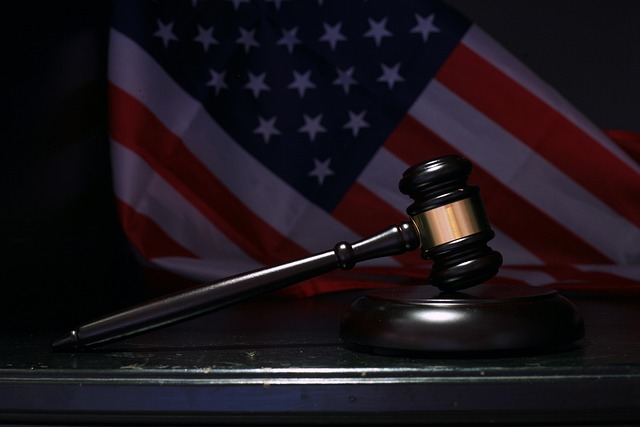Plea negotiations are a critical aspect of criminal law, shaping trial outcomes by facilitating discussions between prosecutors and defendants to resolve cases without court. This process involves strategic argumentation, evidence assessment, and sentence negotiation, aiming for favorable outcomes like charge reduction or dismissal. Effective plea bargaining streamlines trials, conserves resources, reduces recidivism, and offers a balanced approach to criminal justice. However, it presents an ethical dilemma, requiring attorneys to balance efficiency with justice while ensuring fairness for clients. Strategic planning and skilled legal representation are vital for successful negotiations, leading to efficient resolutions that benefit both defendants and the judicial system.
“Criminal law enforcement faces a delicate balance between seeking justice and securing efficient resolutions. This article explores the intricate world of plea negotiations, delving into their process, purpose, and profound impact on trial outcomes. We analyze how plea bargaining influences legal strategies for both prosecutors and defendants, while examining ethical considerations that underpin these negotiations.
Through case studies, we highlight successful and unsuccessful plea agreements, shedding light on the factors determining acceptability and the broader implications for the criminal justice system.”
- Understanding Plea Negotiations: The Process and Its Purpose
- The Impact of Plea Bargaining on Trial Outcomes
- Factors Influencing Plea Deal Acceptability for Prosecutors and Defendants
- Ethical Considerations in Plea Negotiations: Balancing Justice and Efficiency
- Case Studies: Examining Successful and Unsuccessful Plea Bargain Agreements
Understanding Plea Negotiations: The Process and Its Purpose

Plea negotiations are a crucial aspect of criminal law enforcement that often determine trial outcomes. This process involves discussions between prosecutors and defendants or their attorneys, aiming to reach an agreement that resolves the case without proceeding to trial. During negotiations, lawyers for their clients present arguments, weigh evidence, and consider potential sentences. The goal is not merely to avoid a trial but to achieve the best possible outcome, which could include reducing charges, minimizing penalties, or securing a complete dismissal of all charges in high-stakes cases.
Understanding how plea negotiations affect trial outcomes is essential for both defendants seeking to protect their rights and prosecutors ensuring just and efficient justice. Effective negotiations require strategic thinking, knowledge of the law, and a deep understanding of the specific case. Ultimately, they serve as a critical tool for navigating complex legal landscapes, providing an alternative path to resolution that can be more beneficial for all parties involved than a potentially costly and lengthy trial.
The Impact of Plea Bargaining on Trial Outcomes

Plea bargaining is a critical aspect of criminal law enforcement that significantly influences trial outcomes. This process involves negotiations between prosecutors and defendants, often with the assistance of defense attorneys, to reach an agreement on a lesser charge or a reduced sentence in exchange for a guilty plea. The impact of these negotiations can be profound, as they can lead to more efficient case dispositions and potentially achieve extraordinary results. By streamlining the trial process and avoiding lengthy jury trials, plea bargaining can save judicial resources and reduce backlogs, ensuring that other cases receive timely attention.
Moreover, an unprecedented track record of successful prosecution and reduced recidivism rates can be attributed to effective plea negotiations. This strategy allows for a more tailored approach, taking into account the specific circumstances of each case and the defendant’s potential for rehabilitation. As a result, defendants may opt for plea agreements that offer opportunities for early release or less restrictive sentencing, encouraging them to take responsibility for their actions and reintegrate into society. Such outcomes benefit not only the justice system but also the philanthropic and political communities by fostering a more balanced approach to criminal justice reform.
Factors Influencing Plea Deal Acceptability for Prosecutors and Defendants

Plea deals play a pivotal role in criminal law enforcement, significantly influencing trial outcomes. Prosecutors and defendants alike consider various factors when deciding whether to accept or reject a plea negotiation. For prosecutors, the acceptability of a plea deal hinges on several key elements. These include the strength of the evidence, potential penalties if the case goes to trial, and the defendant’s willingness to cooperate with law enforcement. Additionally, the prosecutor’s respective business goals and priorities shape their assessment—they aim for an unprecedented track record in convictions while ensuring justice is served.
Defendants, on the other hand, weigh their options based on factors such as potential prison time, fines, and the impact of a conviction on their future opportunities. Legal representation is crucial here, as defense attorneys guide their clients through these negotiations, aiming for the best possible outcome. The acceptability of a plea deal, therefore, rests on a delicate balance between achieving justice and mitigating adverse consequences for both parties involved in the criminal legal process.
Ethical Considerations in Plea Negotiations: Balancing Justice and Efficiency

Plea negotiations are a critical phase in criminal law enforcement, where prosecutors and defendants come together to discuss a potential settlement before trial. This process presents unique ethical considerations that demand careful balancing between the pursuit of justice and the quest for efficiency. On one hand, reaching a plea agreement can save significant time and resources, potentially avoiding lengthy trials and the associated costs. It also allows for a quicker resolution, which is often beneficial for victims seeking closure and for defendants who may face harsher sentences if convicted at trial.
However, the ethical dilemma arises when ensuring that justice is not compromised. A successful defense strategy often revolves around challenging the evidence and exposing vulnerabilities in the prosecution’s case. During plea negotiations, attorneys must weigh the potential outcome of a trial against the benefits of a plea deal. While some deals may result in winning challenging defense verdicts or even avoiding indictment altogether, it’s essential to maintain integrity and not encourage guilty pleas where there is substantial doubt about the defendant’s guilt. An unprecedented track record of successful defenses should not overshadow the fundamental principle that every individual deserves a fair trial.
Case Studies: Examining Successful and Unsuccessful Plea Bargain Agreements

Plea bargain agreements play a pivotal role in shaping trial outcomes within criminal law enforcement. Case studies offer a compelling lens to analyze this aspect. Examining successful plea negotiations reveals strategies that lead to efficient case resolutions, often resulting in reduced sentences for defendants and lighter burdens on judicial systems. For instance, in many cases across the country, prosecutors have achieved unprecedented track records by negotiating pleas at early stages of the investigative and enforcement process. This proactive approach benefits both parties involved, ensuring quicker justice without compromising the integrity of investigations.
In contrast, unsuccessful plea bargain attempts can prolong legal battles and increase costs. Unfavorable agreements or breakdowns in negotiations may lead to prolonged trials, potentially exposing sensitive information and impacting witness reliability. These outcomes underscore the importance of skilled legal representation and strategic planning throughout all stages of the process. Effective plea negotiations are not merely about reaching a quick settlement but ensuring fairness while managing complex criminal cases efficiently.
Plea negotiations play a pivotal role in shaping criminal justice systems, as evidenced by our exploration of how plea negotiations affect trial outcomes. This article has delved into the intricate process, highlighting its purpose and various factors influencing its outcome. From understanding the impact on case resolution to examining ethical considerations, we’ve uncovered the complex web of decisions that lead to plea bargain agreements. By studying successful and unsuccessful cases, it’s clear that effective plea negotiation strategies are key to achieving just and efficient trial outcomes, ensuring a balanced approach to justice.






